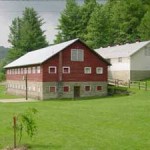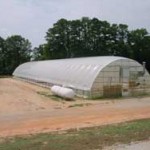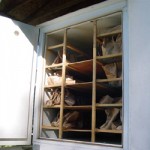Medicinal Herbs for Commerce: Evaluating
go.ncsu.edu/readext?436167
en Español / em Português
El inglés es el idioma de control de esta página. En la medida en que haya algún conflicto entre la traducción al inglés y la traducción, el inglés prevalece.
Al hacer clic en el enlace de traducción se activa un servicio de traducción gratuito para convertir la página al español. Al igual que con cualquier traducción por Internet, la conversión no es sensible al contexto y puede que no traduzca el texto en su significado original. NC State Extension no garantiza la exactitud del texto traducido. Por favor, tenga en cuenta que algunas aplicaciones y/o servicios pueden no funcionar como se espera cuando se traducen.
Português
Inglês é o idioma de controle desta página. Na medida que haja algum conflito entre o texto original em Inglês e a tradução, o Inglês prevalece.
Ao clicar no link de tradução, um serviço gratuito de tradução será ativado para converter a página para o Português. Como em qualquer tradução pela internet, a conversão não é sensivel ao contexto e pode não ocorrer a tradução para o significado orginal. O serviço de Extensão da Carolina do Norte (NC State Extension) não garante a exatidão do texto traduzido. Por favor, observe que algumas funções ou serviços podem não funcionar como esperado após a tradução.
English
English is the controlling language of this page. To the extent there is any conflict between the English text and the translation, English controls.
Clicking on the translation link activates a free translation service to convert the page to Spanish. As with any Internet translation, the conversion is not context-sensitive and may not translate the text to its original meaning. NC State Extension does not guarantee the accuracy of the translated text. Please note that some applications and/or services may not function as expected when translated.
Collapse ▲This project is long over but the information is still relevant and kept updated.
Step 2: Evaluating Your Resources and Personal Considerations
When people consider growing medicinal herbs, they usually have a pretty good mental image of what they want to do. For example, a tobacco farmer might envision growing 50 acres of purple coneflower that he would cut with a sickle-bar, windrow, bale, dry in a converted tobacco barn, and load onto a tractor trailer for delivery to a raw materials buyer in New York. An administrative assistant, suddenly laid-off from her job, might dream of growing lavender in a quarter-acre plot in her backyard and use it to make soaps and lotions to sell at her friend’s gift shop in town. These are both great ideas, but are they practical? There are many questions you need to ask yourself at this stage. Write down your idea and then consider all the following questions. There are no right or wrong answers here. This is just to get you thinking in more practical terms about your idea. You might find you have to “tweak” your plans a little to make them practical!
When people consider growing medicinal herbs, they usually have a pretty good mental image of what they want to do. For example, a tobacco farmer might envision growing 50 acres of purple coneflower that he would cut with a sickle-bar, windrow, bale, dry in a converted tobacco barn, and load onto a tractor trailer for delivery to a raw materials buyer in New York. An administrative assistant, suddenly laid-off from her job, might dream of growing lavender in a quarter-acre plot in her backyard and use it to make soaps and lotions to sell at her friend’s gift shop in town. These are both great ideas, but are they practical? There are many questions you need to ask yourself at this stage. Write down your idea and then consider all the following questions. There are no right or wrong answers here. This is just to get you thinking in more practical terms about your idea. You might find you have to “tweak” your plans a little to make them practical!
Land and Physical Resources
Take a look at what you already have. You reduce risk by using what you have available instead of investing in new. What is your land like?
Do you have woods? If you want to grow shade-loving botanicals, such as ginseng or goldenseal, you will need shade. If you have woods, you can provide that shade naturally. If you don’t have woods, you need to build artificial shade structures. Polypropylene shade structures, as used in large-scale commercial ginseng operations, can cost $8,000 or more per acre.
Do you have big, flat, open fields? If you envision producing large volumes of open field crops, such as purple coneflower or valerian, you need to have fields that are suitable for growing common field crops such as corn or soybeans.
Do you only have a small, sunny area behind the house? If this is all you have, don’t be discouraged. There are many small-scale, value-added products you can produce that require a minimal amount of raw herb material. Soaps, lotions, lip balm, and herb vinegars are just a few examples of products you can make from a small number of plants that you can grow yourself.
How healthy is your soil? Don’t think that you can grow your herbs on a poor piece of land where other crops won’t grow. Your herbs need a good site, with rich, well-drained soil.
How long is your growing season? Consider the kinds of herbs you want to grow and where your land is. For example, farms in eastern North Carolina can probably produce three cuttings of California poppy whereas in the mountains of western North Carolina, where the growing season is shorter, they will only produce one or two.
Can you protect your crops from theft? Ginseng is a valuable plant that has been wild-harvested in the Appalachian mountains for many generations. If you try to grow ginseng in a region where it is also wild-harvested, you can be certain that someone is going to try to steal it at some time.
What grows well on your land? This question is to encourage you to think about what you have been able to grow on your property already. Don’t try to grow a crop that is totally unsuited to your situation.
Can you grow most summer vegetables? If you can’t grow tomatoes, lettuce, or zucchini on the field you are considering for your herbs, you need to ask yourself why. Is the soil too wet? Too dry? Too cold? Too poor? Is there too much shade? If these vegetables won’t grow well in that field, then many of the common field herbs won’t either.
Can you grow carrots or potatoes? If you can’t grow these root crops in that field, consider why not. Is the soil too shallow? Do you hit bedrock or a hardpan within a few inches of the surface? Or is the ground water very near the soil surface and your root crops rot? If this is the case, then root herbs, such as Echinacea and valerian are not appropriate for this field.
Can you grow mushrooms? If the site you are considering for herbs grows great mushrooms, then it must be moist and shaded. The site might be appropriate for black cohosh, but not for dandelion.
Can you grow soybeans? If this is a good field for soybeans, it will probably be a good field for most open-field herbs, such as Echinacea, mint, or lavender.
Other land considerations
Depending on the kind of herb business you want to start, these could be important questions to ask yourself.
Is your property easily accessible by the public? If you want customers to come to you, your farm or business location should be easy for people to drive to and find. If it is remote, there should be lots of signs directing them to the location. If you are offering a rustic experience, or need a four-wheel drive vehicle to reach it, you need to advertise it as such.
Is your property pretty? People like visiting beautiful, rural settings. Do you have one? If so, you might want to include this in your business plan.
How far are you from a large population center? People will drive a fair distance for a once a year event, such as cutting a Christmas tree or picking a pumpkin. But it your business will depend on frequent, repeat business, being in a remote location, no matter how pretty it is, will not be attractive to most customers.
What kind of equipment do you own?
As mentioned earlier, to reduce risk, it’s a good idea to use what you have instead of buying expensive equipment and constructing new facilities. If you really do need to buy a piece of equipment, consider buying it used. The NC Agricultural Review, I WANNA, and your local newspaper are good sources for ads for used farm equipment.
Do you have a greenhouse? For many herb businesses, a greenhouse is a real plus. You can produce your own transplants, start a nursery, grow herbs during the off-season, and use the greenhouse as an extra shelter for working in and storing supplies. If you don’t have a greenhouse, a small one can be constructed quite inexpensively with PVC pipe and plastic sheeting.
Do you have a tractor? Many new herb growers who do not have a farming background make the mistake of thinking they can grow an acre or more of herbs without a tractor. They assume a roto-tiller and a hoe will do it. This is rarely true. If you don’t own a tractor, make arrangements to hire the services of a local farmer to till your field and cultivate your crop several times during the growing season.
Do you have irrigation? In most areas, irrigation should be readily available to produce herbs. Most herbs are of high enough value to warrant this. The type of irrigation should be appropriate for the kind of crop you are producing and the water source. Overhead irrigation is good for most open-field herb crops.
Do you have a barn? If you don’t have a barn, you are going to need some kind of sheltered space for storing your supplies, tools, and seeds; cleaning and sorting your herbs; and storing your herbs.
Do you have a drying facility? Lack of appropriate drying facilities has ruined many herb crops. You must have a dryer suitable for the climate you are in and the herb you are drying. For example, if you are in a humid climate, trying to dry your herbs by just hanging them in an open barn will not work.
Personal Considerations
How intensively managed a crop are you willing, and able, to take on?
How much time do you have? Do you work a full-time job and plan to grow herbs on nights and weekends? How much time does this really give you? Think about it. Do you also have young children, housework, a yard to maintain, and obligations to your church and community?
How much energy do you have? Be realistic! When harvest time rolls around, can you work long hours non-stop until the job is done? Or do you need your eight hours of sleep each night?
How much other help do you have? Will you be doing this alone? Are you assuming that family members will help you? Have you asked them? Are they interested? Can you hire help?
How much physical strength do you have? Some aspects of herb production take strength, endurance, and flexibility. Do you have that? Or will someone be working with you who does? If you don’t have a mechanical transplanter, the plants will have to be field-set by hand. This is back breaking work. Are you up to it? Can you find a creative way to get that kind of work done?
How do you want to market?
How you want to market is an important consideration before getting into medicinal herb production. Some people love marketing; most farmers don’t. Which are you?
Large volume sales
Do you envision growing large acreages of herbs, harvesting them with a combine, drying them in a tobacco barn, and selling them by the tractor trailer load?
Do you want to spend a minimum of time marketing? If you answered yes to those two questions, then you want to sell on the wholesale market. You should realize that wholesale brings the lowest price per unit, so you will need to produce and sell large volumes to make a profit. You could sell to a local raw materials dealer or direct to a large manufacturer.
Wholesale, but not commodity level sales
Do you want to receive a higher price than wholesale usually brings or produce smaller volumes than most dealers or large manufacturers require?
But you still don’t want to spend a lot of time marketing? Then consider selling bulk herbs to retail natural products stores, coops, or small manufacturers. To be competitive on this market, your product must be of the highest quality, consistent, and price competitive.
Retail sales
Do you like people and want to receive a higher price per unit? Then consider selling direct to the consumer at tail-gate markets, retail outlets on the farm, or at festivals and trade shows.
Value-Added Products
Are you creative? Do you like to make things? Consider making your own value-added products and selling them wholesale or retail. Product ideas include herb teas, seasoning mixes, herbal body care products, and tinctures.
Nurseries
Consider running a medicinal herb nursery and sell plants wholesale or retail. You can sell wholesale to garden centers, run an internet-mail order nursery, or sell direct from the farm.
Be a source of high-quality planting stock. There is a shortage of nurseries providing large volumes of planting stock. Perhaps this is your niche to fill.
Agri-tourism
Is the thought of having large numbers of tourists and children visiting your farm attractive? Then make your farm a tourist destination. Educate, entertain, and sell your products and knowledge of herbs.
Financial Considerations
How are you going to finance your new enterprise?
Can you finance your new enterprise yourself with savings or by selling a piece of property or personal belongings? It would be preferable during the trial stage of herb production to not get into debt.
Can you borrow from family or friends? Often you can do this at a reduced interest rate, but be sure to put it in writing and make it a professional transaction.
Can you take out a second mortgage on your house? This is a scary thought for many people, but often it is their only source of capital.
Can you borrow from a commercial lender? Start with lenders who are experienced at dealing with agricultural businesses.
Are there any small business lenders in your area, such as micro enterprise funds? Talk to the small business and economic development organizations in your area for possible sources of low-interest loans.
Are there local, state, or federal grant opportunities? There are many grants aimed at helping farmers diversify, keeping small farms profitable, and encouraging sustainable agriculture. Search the internet, read the farm page in the newspaper, and contact your county extension office and state department of agriculture for grant sources. Next>
LINKS:
- The PLANTS Database provides information about the vascular plants, mosses, liverworts, hornworts, and lichens of the U.S. and its territories. It includes names, plant symbols, checklists, distributional data, species abstracts, characteristics, images, plant links, references, crop information, and automated tools.
- International Herb Association – A professional trade association providing educational, service and development opportunities for those involved in herbal endeavors.
- United Plant Savers mission is to protect native medicinal plants of the United States and Canada and their native habitat while ensuring an abundant renewable supply of medicinal plants for generations to come.
Jeanine Davis, NC Alternative Crops and Organics Program, Department of Horticultural Science, NC State University. Updated 3/11/2025.





